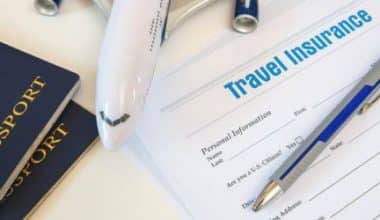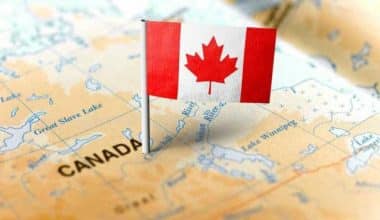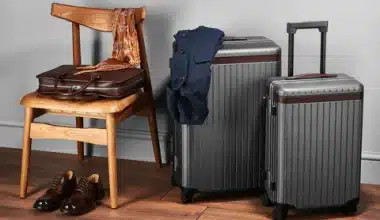Creating a holiday budget is an important part of planning for a fun and stress-free vacation experience. In this article, we have provided you with tips to keep in mind when making your holiday budget. Making a holiday budget can be an effective way to ensure that you can enjoy your vacation without overspending. The key to creating a successful holiday budget is to include all of your expenses ahead of time, such as transportation costs, lodging expenses, food and beverage expenses, activity expenses, and gift expenses. Kindly read through for a better understanding and what may arise, if the holiday budget isn’t planned properly.
Holiday Budget
A holiday budget refers to a financial plan that individuals or families create to manage their expenses during a holiday or vacation. It helps to ensure that you can enjoy your holiday without overspending or incurring excessive debt. Holiday budgeting is the practice of planning and managing your finances during the holiday season. The holidays can be a very expensive time, with gift-giving and other expenses adding up quickly. Planning and budgeting can help you avoid overspending and debt during this time.
Creating a holiday budget is an important part of planning a vacation. To begin, it is helpful to identify the total amount of money you have available to spend. From there, you can allocate funds to specific categories such as transportation, accommodation, food, entertainment, and souvenirs. It is important to be realistic and honest about how much money you have and how much you can spend on each category.
Factors to Consider While Creating a Budget List
Here are several ways to save for holidays, and it generally involves planning and budgeting.
#1. Create a Budget
You need to have a clear idea of your holiday expenses. Create a budget that includes all the costs, such as airfare, accommodation, food, and activities.
#2. Create a Separate Savings Account
Open a dedicated savings account specifically for your holiday funds. This will help you track your progress. Separate your holiday savings from your regular expenses.
Cut back on expenses. Look for ways to reduce your expenses, such as cutting back on eating out, canceling subscriptions you do not use, or switching to a less expensive phone or internet service.
#3. Automatic Savings
Set up automatic transfers to your holiday savings account each month or every payday. This way, you can save without thinking about it, and you’re less likely to miss the money you’re setting aside.
#4. Sell Unused Items
You can sell items you no longer use, such as old clothes, electronics, or books, to boost your holiday savings.
#5. Look for Deals
Take advantage of sales, promotions, and deals to save on your holiday expenses. Compare prices and shop around before purchasing anything.
Increase your income: Explore ways to increase your income to boost your savings for your holiday.
#6. Save Windfalls or Unexpected Money
Whenever you receive unexpected money, consider putting a portion or the entire amount into your holiday savings
#7. Prioritize your Savings
Make saving for your holiday a priority. When you are setting your budget, you should also factor in any travel deals, discounts, or rewards programs that you might be able to take advantage of to reduce your overall costs. With careful planning and budgeting, you can enjoy a stress-free and financially responsible vacation without breaking the bank. The purpose of a holiday budget is to help you have a memorable and enjoyable experience without financial stress. By planning and being mindful of your expenses, you can make the most of your holiday within your means.
Holiday Budget Tips
There are many resources and tips available to help you create and stick to a holiday budget.
Holiday budget tips to help you make the most of your vacation without breaking the bank:
#1. Start Saving Early
Begin setting aside money specifically for your holiday well in advance. This allows you to accumulate funds gradually over time. It also reduces the financial strain when the time comes to book and pays for your trip.
#2. Research and Compare Prices:
Spend time researching different travel options, accommodations, flights, and activities. Compare prices from various sources to find the best deals and discounts.
#3. Travel during Off-peak Seasons
Traveling during off-peak seasons or shoulder seasons can significantly lower costs. Prices for flights, accommodation, and activities tend to be lower, and popular tourist destinations are usually less crowded.
#4. Be Flexible with Your Travel Dates
If possible, be flexible with your travel dates. Sometimes, shifting your departure or return dates by a few days can result in significant savings on flights and accommodations.
#5. Set a Daily Spending Limit
Determine a daily spending limit for meals, transportation, and activities. This helps you stay within your budget and avoid overspending on non-essential items.
#6. Consider Alternative Accommodations
Explore alternative accommodation options such as vacation rentals, hostels, or even house-sitting. These options can often be more budget-friendly, especially if you’re traveling with a group.
#7. Use Public Transportation
Use public transportation systems such as buses, trains, or subways. Public transportation is generally more cost-effective.
#8. Cook some of your Meals
Consider booking accommodations with kitchen facilities or opting for self-catering options. This allows you to prepare some of your meals, saving money on dining expenses.
#9. Look for Free or Low-cost Activities
Research and prioritize free or low-cost activities and attractions.
#10. Use Travel Rewards or Loyalty Programs
If you have travel rewards or loyalty program memberships, take advantage of them. Use accumulated points or miles to offset travel expenses, book discounted accommodations, or access exclusive deals.
#11. Pack Wisely
Avoid overpacking and potentially overweight baggage fees by packing efficiently. Check the baggage allowance of your airline and pack only what you truly need for your trip. Travel light.
Holiday Budget Planning
Holiday budget planning is the process of creating and managing a budget for the holiday season. This involves identifying all holiday expenses, such as gifts, travel, decorations, and food, and setting a realistic budget for each category.
Steps to Help you with Holiday Budget Planning:
#1. Determine your Overall Budget
Start by assessing your financial situation and decide how much you can afford to spend on your holiday. Consider your income, savings, and any other financial obligations you may have. This will give you a clear idea of the total amount you can allocate for your trip.
#2. Choose your Destination
Select your holiday destination based on your budget. Consider the cost of transportation, accommodation, meals, activities, and the overall affordability of the location. Research different destinations to find options that align with your budget.
#3. Research Travel Costs
Determine the cost of transportation to your destination. If you’re flying, research flight prices and compare different airlines or travel booking websites to find the best deals. If you’re driving, calculate fuel costs and tolls. Consider whether it’s more cost-effective to book a round-trip ticket or separate one-way flights.
#4. Estimate Accommodation Expenses
Research various accommodation options, such as hotels, vacation rentals, hostels, or camping sites. Estimate the cost of accommodation based on your desired level of comfort and duration of stay.
#5. Plan your Meals
Allocate a portion of your budget for meals. Research the average cost of dining out in your destination. Determine how many meals you’ll eat at restaurants versus preparing your own.
#6. Allocate Funds for Activities and Attractions
Make a list of the must-visit places and prioritize them based on their importance to you. Allocate funds accordingly and consider any discounted or free options available.
#7. Account for Transportation within the Destination
Determine how you’ll get around your destination. Research local transportation options, such as public transportation, taxis, or car rentals.
#8. Consider Travel Insurance
Evaluate the need for travel insurance and include it in your budget if necessary. Travel insurance can provide coverage for unforeseen events such as trip cancellations, medical emergencies, or lost luggage.
#9. Account for Miscellaneous Expenses
Set aside a portion of your budget for miscellaneous expenses and unexpected costs.
#10. Track your Expenses
As you make reservations and book services, keep a record of your expenses. Use a spreadsheet or a budgeting app to track your spending and compare it to your allocated budget.
#11. Review and Adjust Your Budget
Periodically review your budget throughout the planning process and make adjustments as needed.
What Should be Included in a Holiday Budget?
When creating a holiday budget, it’s important to consider and include various expenses to ensure comprehensive financial planning. Every individual’s holiday budget will vary depending on personal preferences, destination, and the duration of the trip.
Here are some key items to include in your holiday budget:
- Transportation
- Accommodation
- Meals
- Activities and attractions
- Travel Insurance
- Souvenirs and shopping
- Communication and internet
- Contingency funds
- Miscellaneous expenses
- Visas and documentation: If your destination requires visas or travel permits, include the costs of obtaining them.
How Do I Make a Budget for Holidays?
Here are some important points to consider when creating a holiday budget:
- Determine your overall budget
- Set priorities
- Research costs
- Plan for hidden cost
- Track your expenses
- Consider alternative accommodations and transportation
- Plan meals and activities
- Avoid unnecessary expenses
- Keep a buffer for unexpected expenses
- Review and adjust your budget
How Do I Save for Holidays?
Here are some tips to help you save for your next holiday:
Start early: It’s easier to save for your holiday if you start early. Creating a savings plan before your trip will give you enough time to save a decent amount.
- Create a budget
- Create a separate savings account
- Cut back on expenses
- Automatic savings
- Sell unused items
- Look for deals
- Save windfalls or unexpected money
- Prioritize your savings
How Do I Make a Holiday Checklist?
Making a holiday checklist is a great way to ensure that you have everything you need for your vacation.
- To make a holiday checklist, follow these steps:
Decide on the purpose of your checklist: Is it for packing, travel preparations, or holiday planning? This will help you determine the items to include in your list.
Brainstorm the items to include: Write down all the things you need to do or pack for your holiday. - Categorize the items: Organize your list into logical categories, such as travel documents, clothing, toiletries, or gifts. This will make it easier to keep track of what you need to do or pack.
- Prioritize the items: Determine which items are essential and which ones are optional. Put the essential items at the top of your list.
- Make it visually appealing: Use bullet points, bolding, or highlighting to make your list easier to read and follow.
- Review and revise: Go through your list several times to make sure you haven’t missed anything important.
Revise your checklist as needed.
How do I Spend my Holiday Wisely?
- There are many ways to spend your holiday wisely. Here are some ideas based on the search results:
Embrace local experiences - Unplug from work
- Try out a new skill
- Spend time with family and friends
- Volunteer
- Read a book
- Take up a new activity
- Set spending limits
- Practice self-care
- Capture memories mindfully
- Stay flexible and open-minded
How do I Organize My Money for Travel?
Organizing your money for travel is essential to ensure smooth financial management and security during your trip.
Here are some tips to help you organize your money effectively:
- Research the local currency
- Carry money wisely
- Be safety cautious
- Carry a mix of payment methods
- Make a budget
- Consider travel insurance
- Monitor your spending
- Be cautious of public Wi-Fi
Conclusion
By creating a realistic budget and planning, you can avoid the stress of unexpected expenses and the financial hardship that comes with overspending. Using tools such as free budget templates can aid in making a well-structured holiday budget tailored to your financial needs. It is also important to consider any travel deals, discounts, or rewards programs that may help you save money on your vacation expenses. Keeping track of your spending throughout your trip can help ensure that you stay within your budget and avoid overspending. By being diligent in your planning and budgeting, you can enjoy a memorable vacation experience that aligns with your financial goals.
Related Articles
- HOW DOES HOLIDAY PAY WORK: How to Get It and All You Need to Know
- WHAT IS HOLIDAY PAY?: Who’s Entitled to its Benefits
- HOLIDAY OVERTIME PAY: How is it & What it Means
- ARE BANKS OPEN ON BLACK FRIDAY? Do They Have A Black Friday Off





